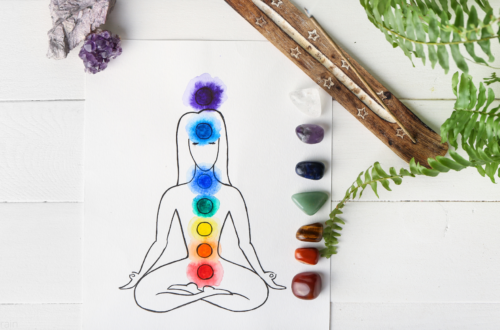
5 Stages of Fasting; Everything You Need To Know!
So What Exactly Happens When You Fast?
Are you considering Fasting? Perhaps you’re interested in its health benefits or want to try it for spiritual reasons.
Whatever your motivation, it’s essential to know what you’re getting yourself into.
Here are the five stages of Fasting, according to Scientific Studies:
- Stage 1: Feeding stage.
- Stage 2: Post Absorptive Stage.
- Stage 3: Gluconeogenesis stage.
- Stage 4: Ketosis stage.
- Stage 5: Protein Conservation Stage.
What is Fasting?
Fasting is the conscious act of abstaining from food, and it’s used for religious, spiritual, and health reasons.
For example, Muslims fast during Ramadan; Catholics fast on Ash Wednesday and Good Friday, and many other fasts for numerous health reasons.
Benefits of Fasting:
- Weight Loss
- Improved Insulin Resistance
- Lower Cholesterol
- Improved Cognitive Function
- Lower Blood Pressure
- Fights Obesity
- Better Memory
- Better Focus
- Longevity (live longer)
Is Fasting For You?
Like most people, you probably think Fasting means depriving yourself of food and water.
But there’s actually much more going on inside your body when you fast than just hunger and thirst. Let’s take a closer look at some of the things that happen to your body when you choose to fast.
Knowing what happens during every fast stage helps you customize your fast based on your goals and intentions and get the utmost benefit from it.
What Happens In Your Body When You Fast?
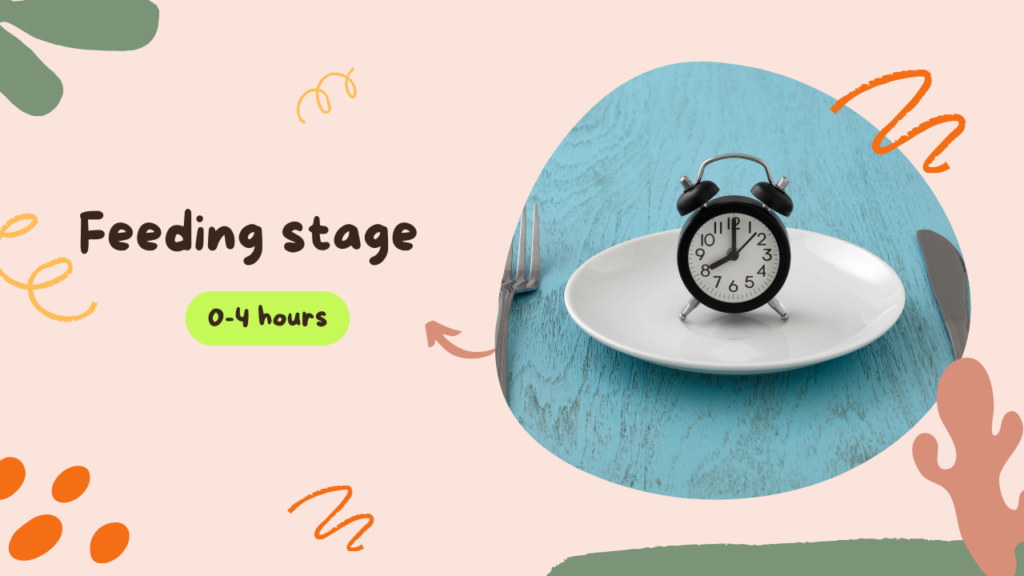
Stage 1: Feeding Stage.
0-4 hours after the last meal:
- Insulin and mTOR increase. Signal the body to store energy.
- Sugar is the primary source of energy.
- No Fat burning takes place.
In simple terms: Up to 4 hours after your last meal, the body uses glucose that comes from the food you just consumed as the primary source of energy and stores it as glycogen in the liver.
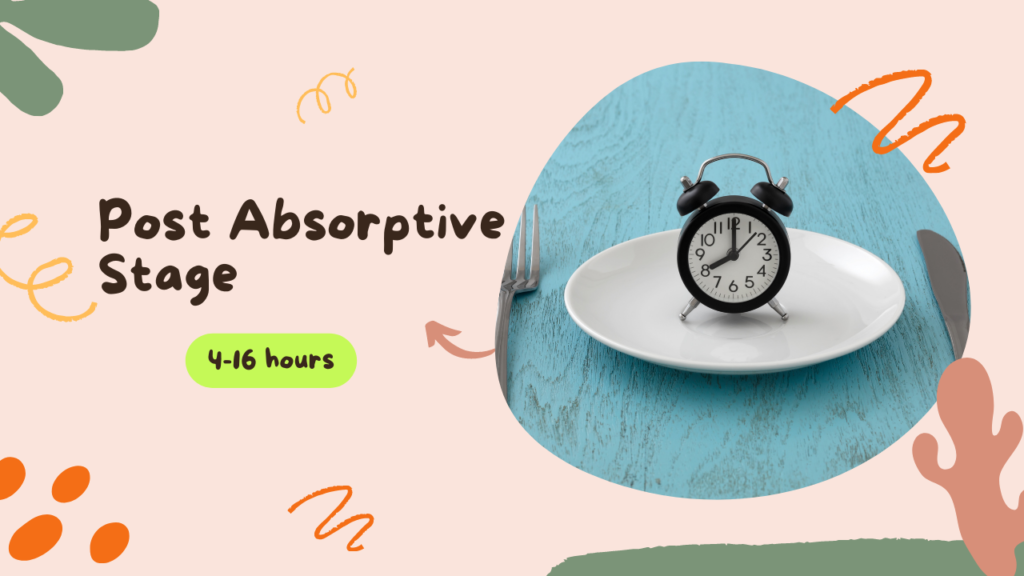
Stage 2: Post-Absorptive Phase.
4-16 hours after the last meal:
- During Stage 2, your body continues to digest the food that was consumed earlier.
- Insulin and mTOR begin to fall.
- Blood Pressure goes down.
- Cortisol and Growth Hormone increase and signal the body to start using stored carbohydrates as fuel.
- Metabolic rate increases.
- At the 10th hour of fasting, muscles use about 50% Glucose and 50% Fat for fuel.
In simple terms: In stage 2, the body starts using stored carbohydrates as the primary energy source.
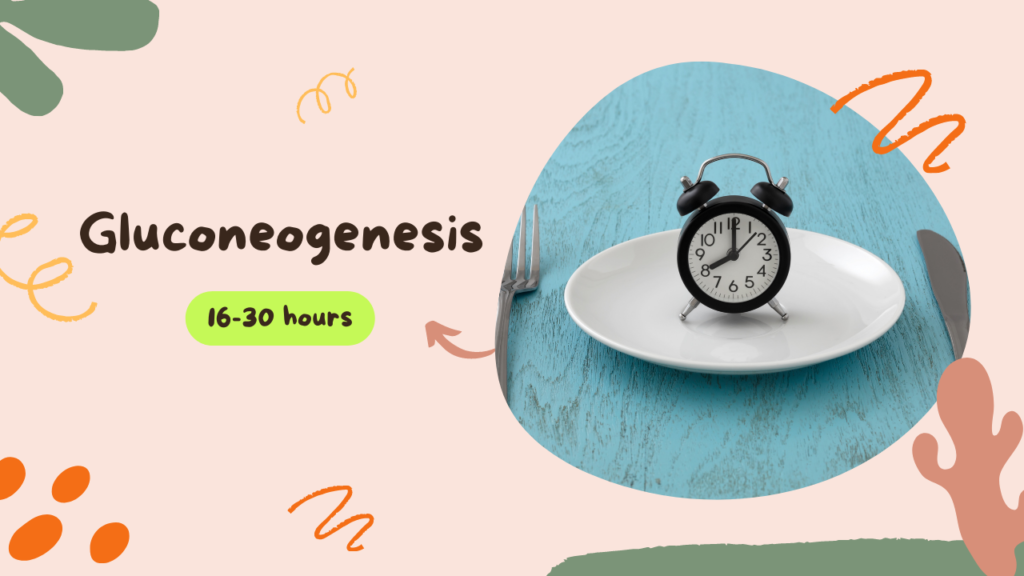
Stage 3: Gluconeogenesis.
16-30 hours after the last meal:
- The Insulin level is low, and Glucagon levels are high.
- Glycogen is starting to run out.
- Autophagy kicks in. ( Cell Recycling)
- The body starts using its tissues (muscle, fat, etc.), protein, and fat to create glucose.
- At this stage, you expect to see an increase in Mood, improved cognition, better focus, and improved memory.
In simple terms: In stage 3, the body uses protein and fat to create energy—fat burning increases. The body starts getting rid of old cells and begins to repair itself.
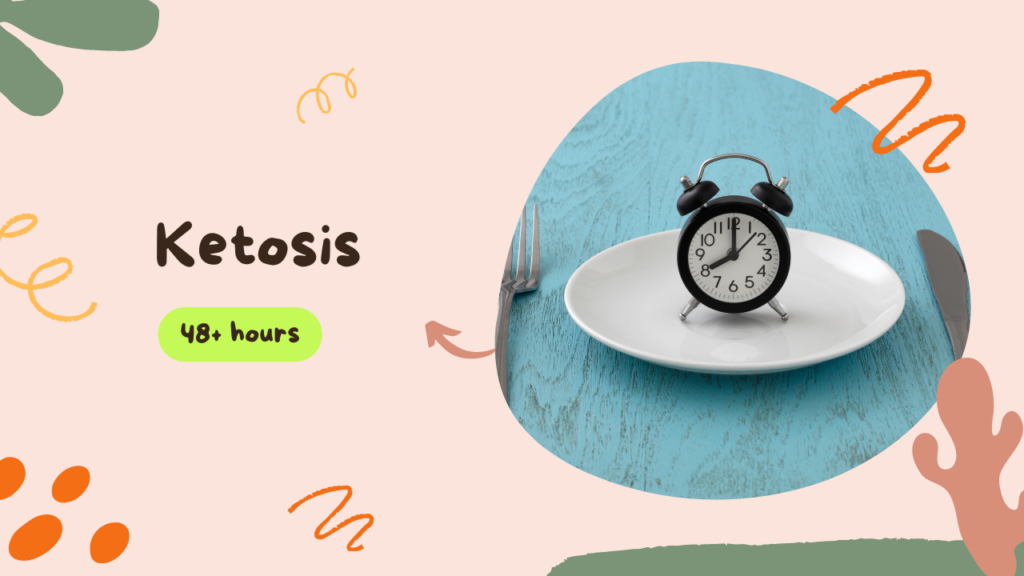
Stage 4: Ketosis!
48 hours to 1 week after last meal (Prolonged Fasting):
- The insulin level is very low.
- The liver starts to create ketones from body fat.
- You are in Ketosis!
- After 36 hours of Fasting, significant Autophagy begins. With autophagy, the body starts to repair itself by getting rid of old cells and regenerating new cells.
In simple terms: The body uses its own fat for energy. Ketones are the by-product of fat-burning and the primary energy source at this stage.
*Fun Fact: During the Ketosis stage, people generally feel energetic. Concentration and memory increase due to ketones being the superior source of energy.
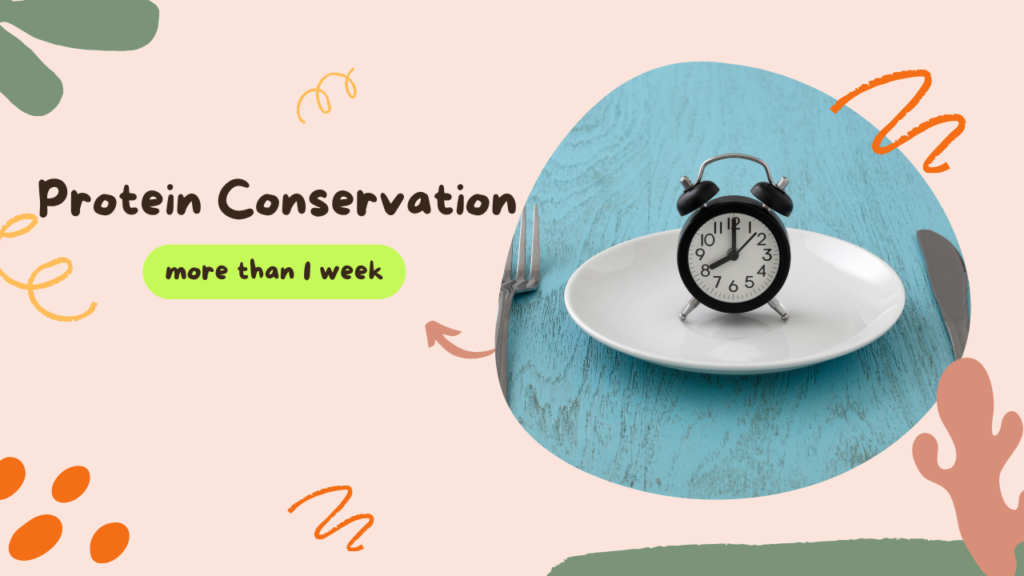
Stage 5: Protein Conservation.
7 days+ after the last meal:
- The body is in full Ketosis.
- Fat is the primary energy source.
- Hunger has diminished almost entirely.
- After 60 hours of Fasting: the immune system begins to regenerate.
- Stem Cell regeneration begins.
A study indicated a 72-hour fast can lead to a complete stem cell rejuvenation.
*Fun Fact: In Stage 5, hunger starts to disappear because the body feeds itself from its body fat!
Takeaway:
If you’re looking for a way to jumpstart your health journey, fasting may be the perfect place to start. Not only are there countless health benefits associated with fasting, but it can also be a great way to learn more about your own body and how to best care for it. So what are you waiting for? Give fasting a try today!



